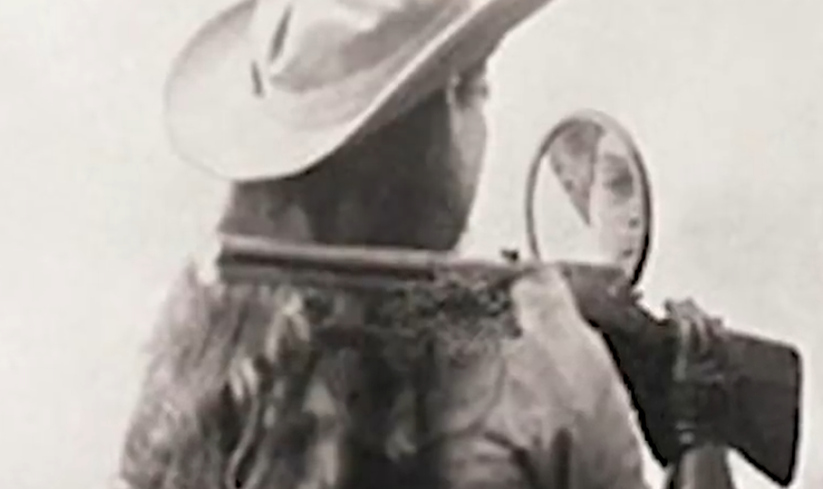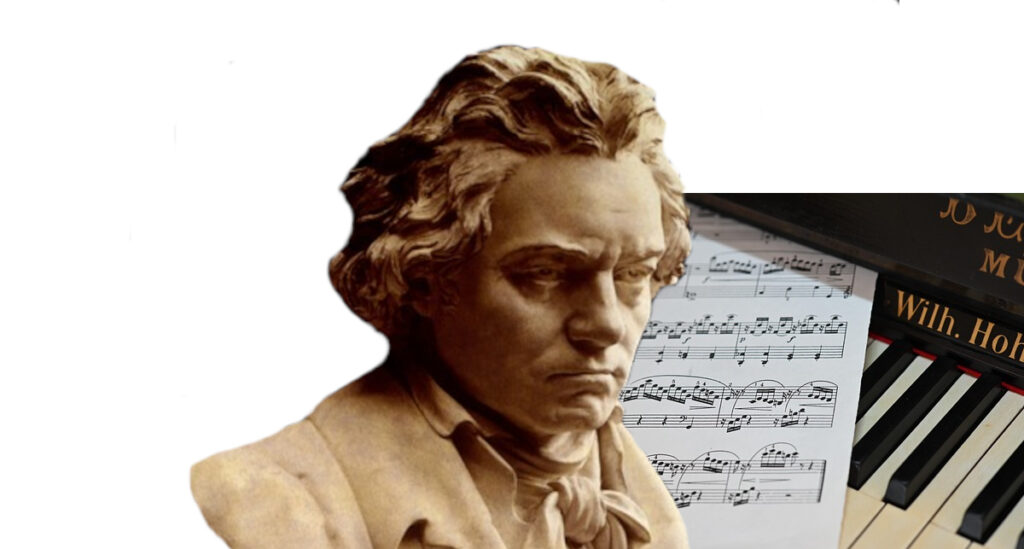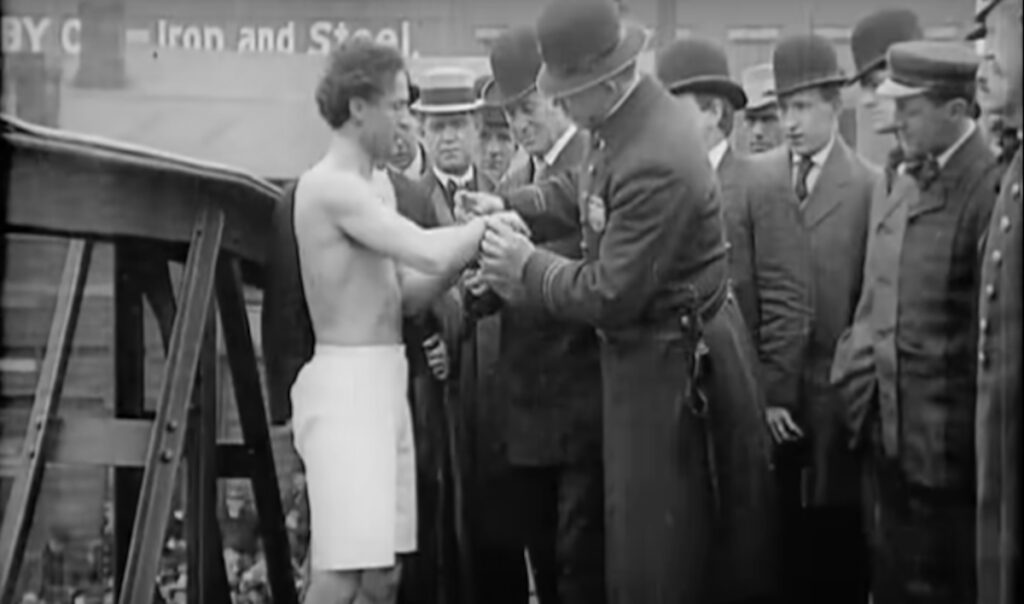Annie Oakley was born Phoebe Ann Moses on August 13, 1860, in Darke County, Ohio. She was the fifth of nine children in a poor family, and her early life was marked by tragedy. When Annie was just six years old, her father, Jacob Moses, died of pneumonia, leaving her mother, Susan, to care for the family alone. This loss was devastating for Annie, who later became the primary breadwinner for her family.
At age 8, Annie was sent to the Darke County Infirmary after her mother could no longer support her. In the institution, Annie was treated poorly and worked hard to survive. It was here that she developed her marksmanship skills, a talent that would eventually lead her to international fame.
In her early teenage years, Annie’s life took a turn when she began hunting to provide food for her family. She was self-taught and developed exceptional skills with a rifle. By the time she was 15, she had become an expert marksman, even winning a shooting contest against a traveling sharpshooter named Frank E. Butler, who would later become her husband.
Annie Oakley’s rise to fame involved many moments of intense competition, particularly with other sharpshooters and performers. Her skills were so remarkable that she often found herself in direct competition with some of the most talented marksmen of her time. These rivalries helped shape her career and solidified her reputation as one of the best in the world.
Early Competitions
Before joining Buffalo Bill’s Wild West Show, Annie Oakley participated in shooting contests, often competing against men. One of her most famous early competitions was against Frank E. Butler, a well-known traveling sharpshooter. In 1875, at just 15 years old, Oakley competed against Butler in a shooting match. Annie won the contest, which led to a partnership between the two and eventually marriage. Frank, who had initially been her competitor, became her manager and greatest supporter.
Buffalo Bill’s Wild West Show and On-Stage Rivalries
When Annie joined Buffalo Bill’s Wild West Show, she was one of the stars of the troupe, but her presence created some tension among the other performers, especially the male sharpshooters. Her talents often outshone those of her male counterparts, which fueled both admiration and rivalry.
One notable competitor was Glen “Minnie” Murphy, another female sharpshooter who was part of the Wild West Show. While Oakley’s fame eclipsed Murphy’s, the two were often compared, especially in their shared role as female marksmen. In the male-dominated world of sharpshooting, the rivalry between Oakley and her male competitors was even more pronounced.
In particular, Oakley had a famous on-stage rivalry with Frank Butler, her husband, in which they would engage in friendly but intense competition during their performances. The two would often try to outdo each other in their marksmanship feats, demonstrating their incredible skill and adding an element of playful competition that entertained the crowds. Despite the competition, they shared a strong and supportive partnership.
Public Challenges and Competitions
Annie Oakley’s reputation for excellence in shooting spread quickly, and many other sharpshooters wanted to challenge her skills. Over the years, Oakley faced several challenges from other marksmen who wanted to prove themselves against the “Little Sure Shot.”
Perhaps the most famous of these challenges came from Frank “Doc” Middleton, another sharpshooter who publicly claimed that no woman could match his skills. He issued a public challenge to Oakley, and she famously accepted. In their contest, Oakley emerged victorious, cementing her status as the finest marksman in the world and proving that her abilities were not limited by gender.
One of Oakley’s greatest feats in competition came during a shooting contest in London, where she faced off against the world’s top marksmen. During the event, Oakley famously hit a target 30 yards away—while standing with her back to it. This act stunned the audience and further solidified her reputation as a legendary sharpshooter.
Personal Life and Marriage
Annie Oakley’s relationship with Frank E. Butler, whom she had met during a shooting contest, was both professional and personal. The two married in 1882, and Frank became her manager. Despite their contrasting personalities—Frank was known to be shy and reserved, while Annie was outgoing and confident—the couple maintained a strong and loving partnership throughout their marriage.
However, Annie’s success came at a personal cost. Although she was adored by the public, Oakley had to endure criticism and skepticism from some, especially as a woman excelling in a man’s world. In the Wild West Show, Annie’s marksmanship was often questioned by male counterparts, but she proved her abilities again and again.
Despite her fame, Annie Oakley always maintained a level of humility and remained fiercely protective of her reputation. She once even sued a newspaper for claiming she had been outperformed by another sharpshooter, and she won the case, proving her skill and maintaining her public image.
Tragedy and Decline
The most tragic part of Annie’s life occurred in 1922, when she and her husband were involved in a car accident. The crash left her with severe injuries, including broken bones and internal damage. For a woman who had been so physically active and independent, this accident marked the beginning of the end of her performing career. The injuries were so debilitating that she was unable to perform in her later years, which significantly impacted her income.
To make matters worse, the couple faced financial difficulties in the wake of the accident. In her later years, Oakley became isolated, and her health continued to deteriorate. Although she attempted to stage a comeback in the 1920s, her physical limitations prevented her from returning to the stage at the same level of success.
Health Struggles and Final Years
As Annie Oakley aged, her health continued to decline. She suffered from chronic pain, likely exacerbated by the car accident. She also struggled with the emotional toll of no longer being able to perform and provide for herself and her husband. The couple’s once-thriving career was now in ruins.
Despite her challenges, Annie Oakley maintained her strong sense of independence. She never gave up on her love of shooting, even teaching young women to shoot in the final years of her life. In 1926, after a long battle with health issues, Annie Oakley passed away at the age of 66 from complications related to her illness.


